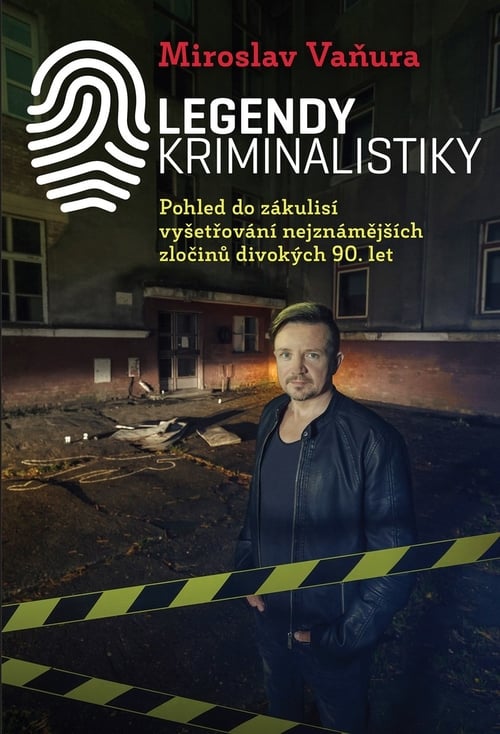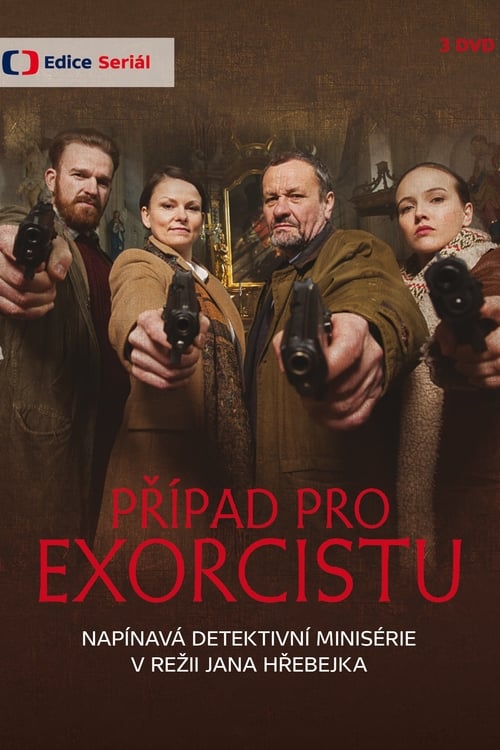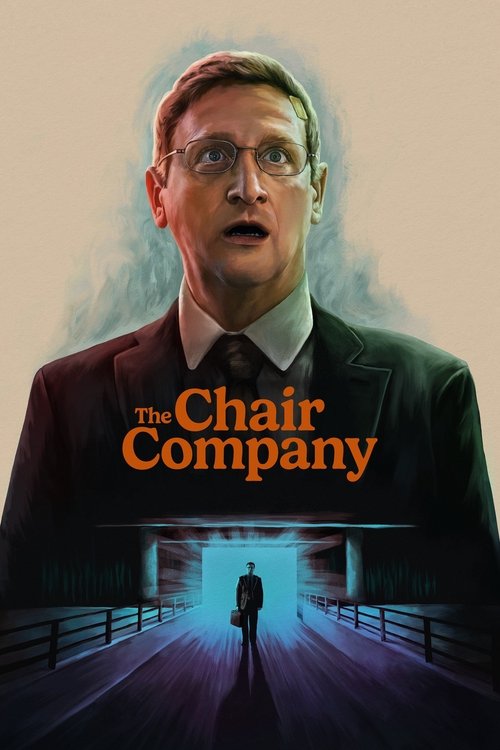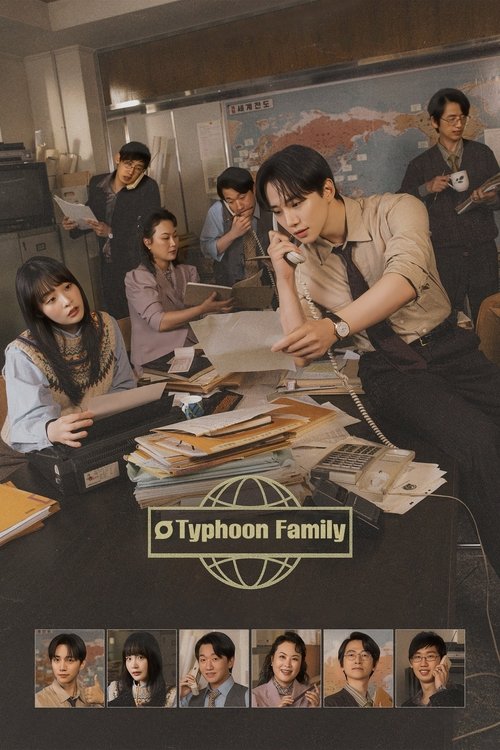
Ask Your Own Question
What is the plot?
In "Episode 8" of "Příběhy českých zločinů," the story begins with a tense atmosphere as the police receive a call about a suspicious incident in a small town. The scene opens with officers arriving at a local bar where a commotion has been reported. Inside, they find a group of patrons arguing heatedly, and the tension is palpable. The camera pans to a man, visibly agitated, who is at the center of the dispute. He is later identified as a key witness to a recent crime.
As the officers attempt to calm the situation, they learn that the man has been drinking heavily and is reluctant to cooperate. His emotional state is erratic, swinging between anger and fear. The police manage to extract some information from him, hinting at a larger issue involving a series of thefts in the area. The man claims to have seen something unusual the night before, but his intoxication makes it difficult for the officers to discern the truth.
The narrative shifts to a flashback, revealing the events leading up to the man's current state. We see him at home, where he is shown to be struggling with personal demons, including financial troubles and a troubled relationship with his partner. This backstory provides context for his behavior at the bar and his desperation to be heard.
Returning to the present, the police decide to investigate the man's claims further. They split into teams, with one group interviewing other patrons at the bar while another follows up on leads regarding the thefts. The investigation reveals a pattern of crimes that seem to be connected, and the officers begin to piece together a timeline of events.
As the episode progresses, the focus shifts to a local gang suspected of being behind the thefts. The police conduct surveillance on the gang's known hangouts, capturing footage of their activities. Tension builds as the officers prepare to make a move, knowing that the gang is dangerous and unpredictable. The emotional stakes rise as the lead investigator reflects on the impact of the crimes on the community, feeling a personal responsibility to bring the perpetrators to justice.
In a pivotal scene, the police execute a raid on one of the gang's hideouts. The operation is fraught with danger, and the officers must navigate through a series of obstacles, including locked doors and aggressive gang members. A confrontation ensues, leading to a chaotic struggle. The lead investigator finds himself face-to-face with the gang leader, and a tense standoff occurs. The emotional weight of the moment is palpable as both men grapple with their motivations--one seeking justice, the other fighting for survival.
The raid concludes with several arrests, but not without consequences. The lead investigator is injured during the confrontation, and the emotional toll of the day weighs heavily on him. As he is treated for his injuries, he reflects on the violence and chaos that have unfolded, feeling a mix of relief and sorrow.
In the final scenes, the episode wraps up with the community beginning to heal. The man from the bar is shown in a moment of clarity, realizing the importance of his role in the investigation. He decides to take responsibility for his actions and seeks to make amends with his partner. The police, while celebrating their success, are reminded of the ongoing challenges they face in maintaining peace and safety in the community.
The episode closes with a sense of unresolved tension, hinting at the complexities of crime and justice, leaving viewers with lingering questions about the characters' futures and the impact of their choices.
Related Titles
Browse All Titles →What is the ending?
In the ending of "Příběhy českých zločinů," season 1, episode 8, the investigation reaches a climax as the truth behind the crime is revealed. The main characters confront their choices, leading to a resolution that highlights the consequences of their actions. The episode concludes with a sense of closure for some, while others face the repercussions of their decisions.
As the episode unfolds, the tension builds in the dimly lit interrogation room where the lead investigator, a seasoned detective, sits across from the primary suspect. The suspect, a man with a troubled past, fidgets nervously, beads of sweat forming on his brow. The detective, with a steely gaze, methodically lays out the evidence, each piece meticulously collected, revealing the web of deceit that has ensnared them both.
Flashbacks intersperse the interrogation, showing the suspect's life leading up to the crime. Scenes of desperation and poor choices flash before the viewer's eyes, illustrating his internal struggle and the motivations that drove him to commit the act. The emotional weight of his decisions hangs heavy in the air, as he grapples with guilt and fear.
As the detective presses for a confession, the atmosphere thickens with tension. The suspect's facade begins to crack, and he reveals the truth in a moment of vulnerability. His voice trembles as he recounts the events that led to the crime, the desperation that clouded his judgment, and the moment he crossed the line. The detective listens intently, his expression a mix of empathy and resolve.
In the final scenes, the aftermath of the confession unfolds. The suspect is taken into custody, the weight of his actions settling upon him like a shroud. The detective, though satisfied with the resolution of the case, reflects on the personal toll of the investigation. He walks away from the police station, the night air cool against his skin, contemplating the fragility of human choices.
The episode closes with a poignant shot of the suspect, now in handcuffs, being led away. His eyes, filled with regret, meet the camera, leaving the audience to ponder the consequences of his actions. The screen fades to black, leaving a lingering sense of the complexities of crime and the human condition.
Is there a post-credit scene?
In "Episode 8" of "Příběhy českých zločinů," there is no post-credit scene. The episode concludes without any additional content after the credits roll, focusing instead on wrapping up the narrative and character arcs presented throughout the episode. The final moments emphasize the emotional weight of the story, leaving viewers with a sense of closure regarding the events that unfolded.
What crime is central to the plot of Episode 8?
The central crime in Episode 8 revolves around a mysterious murder that takes place in a small town, where the local community is shaken by the violent act.
Who are the main characters involved in the investigation of the murder?
The main characters involved in the investigation include the lead detective, who is determined to uncover the truth, and a local journalist who seeks to expose the darker sides of the community.
What are the key motivations of the detective in this episode?
The detective is driven by a personal connection to the victim, which fuels his determination to solve the case and bring justice to the grieving family.
How does the local community react to the murder?
The local community reacts with fear and suspicion, leading to tensions among residents as they grapple with the implications of the crime and the potential for a killer among them.
What clues are discovered that lead to the resolution of the case?
Key clues include a series of witness testimonies, a significant piece of evidence found at the crime scene, and the detective's intuition that connects the dots between various suspects.
Is this family friendly?
"Příběhy českých zločinů," particularly in episode 8, delves into themes of crime and moral ambiguity, which may not be suitable for younger audiences or sensitive viewers. The episode features scenes that include:
- Violence: There are depictions of crime scenes that may include blood or injuries, which could be distressing.
- Murder Investigation: The narrative revolves around a murder case, exploring the emotional aftermath for the victims' families.
- Emotional Turmoil: Characters experience intense emotional states, including grief, anger, and fear, which may be unsettling.
- Dark Themes: The exploration of criminal motives and the psychological impact of crime can be heavy and thought-provoking.
These elements contribute to a mature atmosphere that may not be appropriate for children or those who are sensitive to such topics.













